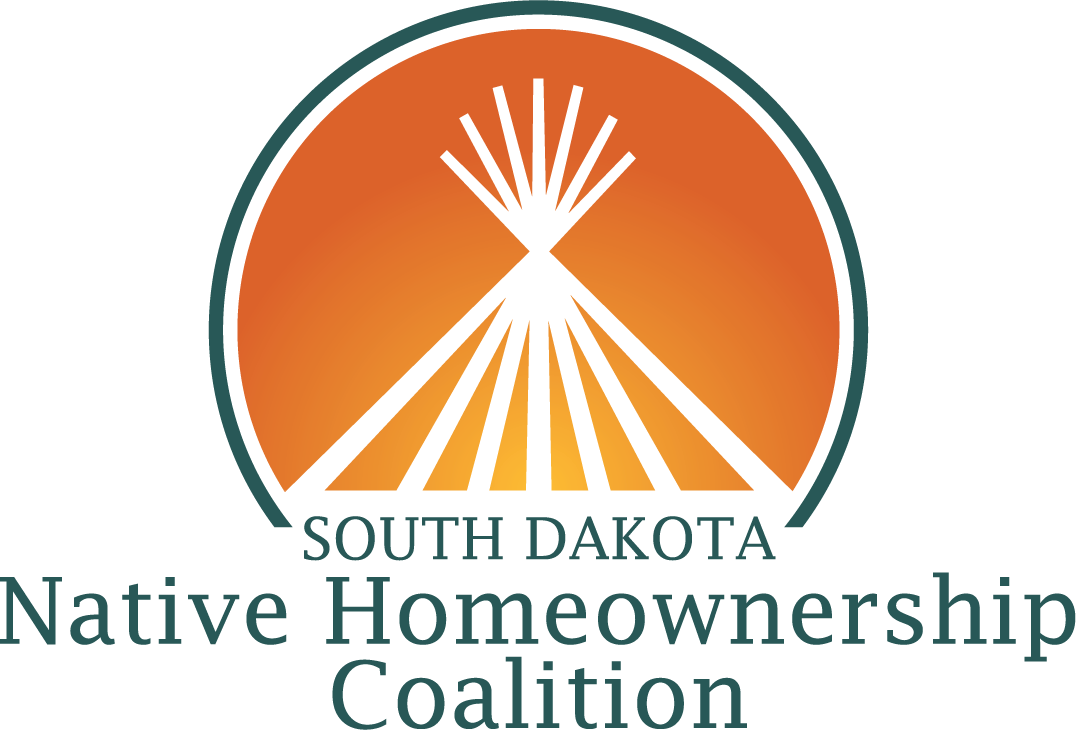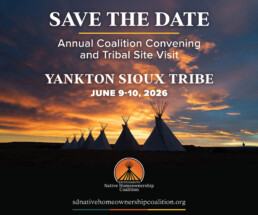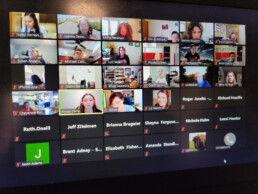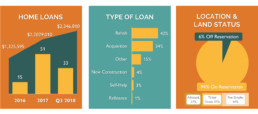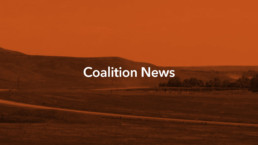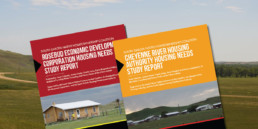SAVE THE DATE: 2026 Annual Coalition Convening & Tribal Site Visit
The SDNHOC is excited to announce our Annual Convening & Tribal Site Visit this summer to the Yankton Reservation. During this visit, we’ll explore the community’s ongoing economic development, cultural heritage, and housing initiatives, while engaging with key partners and learning more about the growth and progress of the Yankton Sioux Tribe.
More details, including registration links, lodging options, and the full agenda, will be shared in the coming weeks. We look forward to welcoming you for this meaningful and enriching experience!
Save The Date: June 9-10, 2026 | Lake Andes, SD
South Dakota Native Homeownership Coalition Releases Statewide Native Veterans Housing Needs and Homeownership Study
To commemorate Veterans Day, the South Dakota Native Homeownership Coalition released today the Statewide Native Veterans Housing Needs and Homeownership Study which analyzed data collected from 418 Native veterans across South Dakota. The study set out to identify the housing and service issues most important to veterans in each of the nine reservations communities in South Dakota. Coalition members will use the results to expand their programming to help to address the collective concerns identified.
According to the study, the homeownership rate for SD Native veterans increased to 43%, up slightly from 39% since the Coalition’s previous data gathering efforts in 2019. However, the 43% homeownership rate for SD Native veterans is still significantly lower than the 69% homeownership rate in South Dakota overall.
“The Coalition has prioritized assisting Native American veterans interested in pursuing homeownership, and the findings from this study really help us to identify their preferences and needs,” said Sharon Vogel, Coalition Chair and Executive Director of the Cheyenne River Housing Authority. “We have such gratitude for the veterans who participated in the survey and for the Coalition members, especially our Tribal Veteran Service Officers, who helped to get the word out about it.”
The Coalition collaborated with the firm Big Water Consulting to design and conduct the survey and draft the statewide report, which aggregates the survey results from all nine reservations. In addition, the report includes a Tribe specific analysis section for each Tribe as well as an analysis of surveys completed by Native veterans residing in Rapid City, SD.
Take a look at the Study!
Download the cumulative report by clicking below.
Tribe Specific Reports.
You can view and download reports specific to each tribe by clicking below.
Read the full press release.
Download the press release by clicking below.
Coalition Celebrates Upward Trend in Native American Homeownership During National Homeownership Month
In recognition of June as National Homeownership Month, the South Dakota Native Homeownership Coalition hosted a virtual celebration where nearly 40 stakeholders from national, state, and tribal levels gathered to share their successes in creating homeownership opportunities for Native American families. The Coalition is also supporting several member organizations as they host local homeownership celebrations throughout the state by providing small housewarming gifts for approximately 100 Native American homeowners.
During the virtual celebration, the Coalition announced they have hired Elias Mendoza (Sisseton-Wahpeton Sioux Tribe) as the Program Director. This is a major step in the Coalition’s journey to become an independent nonprofit organization. As the Coalition’s first full-time staff person, Mendoza will guide the organizational development process and interface with the Coalition’s working committees.
“I am thrilled to be a part of the South Dakota Native Homeownership Coalition and look forward to working with other passionate people across the state to create a clear path to homeownership for our Native families,” says Mendoza.
Also during the event, the Coalition revealed new data showing tremendous growth in Native American homeownership in 2020, despite the COVID-19 pandemic. From 2019 to 2020, Coalition member organizations reported a 126% increase in home loan volume as well as an 80% increase in the number of new homeowners. Nearly all loans closed (94%) were on Indian reservations. There was also an upward trend in funding support for Native organizations from the South Dakota Housing Development Authority’s Homeownership Education Resource Organization (HERO) program. A copy of the full data report can be viewed here.
“The growth in Native American homeownership demonstrates just how hard our partners and practitioners are working in Native communities. We have accomplishments on so many levels to celebrate,” says Tawney Brunsch, Executive Director of Lakota Funds, which serves as the fiscal agent for the Coalition.
Several recent developments are creating a favorable outlook on the policy horizon for Native American homeownership, which will support further growth in this sector. The U.S. Senate Committee on Banking, Housing and Urban Affairs Subcommittee on Housing held their first hearing of the year on “Housing for Native Americans: Review of Federal Programs, Barriers, and Opportunities” where Eric Shepherd, Executive Director of Sisseton Wahpeton Housing Authority, and also Coalition member, testified. This was the first time the Senate Housing Subcommittee held a hearing on Indian housing issues in over a decade! In addition, the hearing illuminated the strong, bi-partisanship collaboration between Chairman Tina Smith (D-MN) and Ranking Minority Member Mike Rounds (R-SD). Furthermore, the Coalition is participating in the South Dakota Legislature’s 2021 Interim Study on Workforce Housing Needs to examine challenges and opportunities in housing for low- and moderate-income individuals and families throughout the state.
“It is great to see Native American representation in these policy discussions. We’re moving in the right direction to create an inclusive economy,” says Mendoza.
Coalition Releases Two Assessment Reports
We recently commissioned two capacity-building needs assessments — one to identify specific capacity-building needs of housing practitioners and other Coalition members, the other to evaluate the barriers and opportunities for lenders providing mortgage financing on tribal trust land. We are pleased to announce the release of those assessment reports today.
Practitioner Assessment
The practitioner assessment was designed to address challenges faced by four key types of stakeholders in the homeownership process: 1) housing practitioners and their organizations, 2) potential homeowners, 3) the Coalition and its members, and 4) tribal leadership, as well as potential solutions to these challenges.
Lender Assessment
To assess the challenges associated with lending on trust land in South Dakota and to learn what lenders need in order to increase trust-land mortgage lending, this project surveyed lenders working across the state. Survey questions were aimed at developing a better understanding of the specific factors that affect applications for mortgages on Indian trust lands, mortgage origination on trust lands, institutional knowledge about lending on trust lands, and organizational practices that facilitate such lending.
Coalition Reveals Collective Impact Resulting from Three-Year Data Collection Initiative
During the Coalition’s Annual Planning Day, we presented the first data report from our ongoing data collection initiative, which began in 2016 with a desire to show the collective impact our member organizations are having on homeownership rates. Twenty-four organizations that provide homeownership training, assistance, and/or loans participated in the initiative.
The data, which was collected through a variety of methods, reflects loans closed, technical assistance provided, and classroom trainings offered from January 2017 through September 2018 by the participating organizations. The report highlights include:
- 131 home loans totaling $7,064,300 were made to Native American families
- Within those loans, $940,380 was provided in subsidies
- A total of 4,997 hours of technical assistance were provided to 1,702 clients
- 2,872 people attended a total of 488 classroom trainings
Other details included in the report were types of loans, land location and land status, types of lenders/packagers, and percentage of subsidies by type. In addition to this activity data the Coalition has implemented and annual activity report and data collection tool which highlights certified counseling activity, the types of trainings offered, partnerships, sources of subsidies, HERO certification, number of clients in loan pipelines, and the key impacts of participating in the Coalition.
This initial report is a brief preview into some of the data that the Coalition collects and reports on. In the future, more detailed reports will be available.
Coalition to Launch Round II of Housing Needs Studies
With support from the South Dakota Housing Development Authority, the South Dakota Native Homeownership Coalition (Coalition) will be facilitating housing needs studies (studies) in two small tribal communities in South Dakota. Under the program guidelines, eligible tribal communities must have a population of 10,000 or less. The size of the community/reservation will determine whether one specific community or the broader reservation is assessed. Work to conduct these studies will start by January 1, 2018, and studies will be completed by June 30, 2018.
These studies will play an important role in effective planning for future housing efforts. The study for each community will include the following data elements: existing housing stock, housing issues, homeownership information, information on housing providers and programs, potential barriers to homeownership, demographics, economics, and recommendations.
In facilitating these housing needs studies, the Coalition will identify two tribal communities to be assessed (through an application – see link below). The Coalition will contract with Big Water Consulting, an experienced firm which has conducted prior studies, to carry out the assessments. Big Water Consulting will work closely with the communities to be assessed, and the sponsoring tribal organization must designate at least one staff member to assist the firm in conducting the assessment. It is critical that the sponsoring community dedicate sufficient time and attention to working with Big Water Consulting.
The total budget for each study will not exceed $20,000 per study. Support from the Coalition (provided by the South Dakota Housing Development Authority) will cover 50% of the cost of each study, for a maximum of $10,000 per study. Each selected community will be required to pay a cash match to cover the other half of the cost of its study (up to $10,000). There are no restrictions on the source of match funds; however, match funds must be provided in cash by January 1, 2018. Applicants will be asked to indicate potential sources of match as part of the application process.
Submitting Applications
To apply to participate in the housing needs study, interested communities should complete the following application. Applicants will be evaluated based on current homeownership efforts, involvement in the Coalition, plans to use information collected through the assessment, and ability to provide matching funds.
The application package should contain:
- Completed application form (signed)
- Scanned copy of governing body minutes or resolution authorizing application
Applications should be submitted by November 30, 2017 per the instructions in the application package.
Housing Needs Assessments Represent Historic Partnership
Two tribal entities, Cheyenne River Housing Authority (CRHA) and Rosebud Economic Development Corporation (REDCO), recently completed housing needs assessments for their respective communities. The two organizations were chosen through an application process that we facilitated in September 2015. The studies were sponsored by the South Dakota Housing Development Authority and mark the first-ever state-supported housing needs assessments of tribal lands. We couldn’t be happier about this partnership, and hope to build on it moving forward.
Each study accurately assessed household characteristics, demographics, and the unique supply and demand characteristics of the local housing markets. While housing development on the reservations is dominated by low-income rentals, the studies revealed a substantial demand for homeownership. The lack of available housing for those who do not qualify for low-income units has forced many community members who currently have employment on the reservation to move off-reservation for housing. The study points out that emigration of skilled individuals off the reservation could significantly stunt community and economic development.
“Many families think they aren’t eligible for homeownership, but they just need a pathway to get there,” says Sharon Vogel, Executive Director of CRHA. They plan to apply information gained from the study to a 188-unit housing development in Eagle Butte.
Taffy Lafferty of REDCO says they will apply study findings to a consumer-driven development of a 750-unit mixed-use subdivision in Mission. She says, “Our people want a safe place to live. Safety and stability is the priority. Homeownership can bring that.”
The studies not only give each reservation a clear idea of specific housing needs (i.e. – number of bedrooms, affordable monthly payments), but they also provide a better understanding of the type of homeowner preparedness strategies (i.e. – financial education, credit coaching) they will need to implement in order to increase homeownership rates. The studies also provide recommendations on culturally-relevant housing development strategies, such as multi-generational housing.
Coalition to Launch Native Housing Needs Studies Project
With support from the South Dakota Governor’s Office and the South Dakota Housing Development Authority, the South Dakota Native Homeownership Coalition will be facilitating housing needs studies (Studies) in two small tribal communities in South Dakota.
These Studies will be designed to aide community members and decision makers in developing a meaningful sense of the housing market in their community and play an important role in effective planning for future housing efforts. The study for each community will include the following data elements: existing housing stock, housing issues, homeownership information, information on housing providers and programs, potential barriers to homeownership, demographics, economics, and recommendations.
In facilitating these housing needs studies, the Coalition will identify two tribal communities to be assessed through an application process, and select an experienced firm to carry out the assessments through a competitive proposal process. Work to conduct these Studies will start by October 1, 2015, and Studies will be completed by March 31, 2016.
More Information for Tribal Communities
Under the program guidelines, eligible tribal communities must have a population of 10,000 or less. The size of the community/reservation will determine whether one specific community or the broader reservation will be assessed. If selected, the tribal community must designate at least one staff member to dedicate sufficient time and attention to the assessment.
Each selected community will be required to cover 50% of the cost of each study, up to $10,000. There are no restrictions on the source of funds; however, funds must be provided in cash by October 1, 2015.
To apply, interested communities should submit completed applications according to the guidelines stated in the application package by September 1, 2015.
More Information for Tribal Communities
Under the program guidelines, eligible tribal communities must have a population of 10,000 or less. The size of the community/reservation will determine whether one specific community or the broader reservation will be assessed. If selected, the tribal community must designate at least one staff member to dedicate sufficient time and attention to the assessment.
Each selected community will be required to cover 50% of the cost of each study, up to $10,000. There are no restrictions on the source of funds; however, funds must be provided in cash by October 1, 2015.
To apply, interested communities should submit completed applications according to the guidelines stated in the application package by September 1, 2015.
Questions
The Coalition will be accepting questions regarding the application for assessment and the Request for Proposal from August 1 – 15, 2015. Questions will be submitted and answered through an open and transparent platform on our website.
Please submit questions through the Comments platform below, and be sure to state whether your question is for the application or the Request for Proposal. All questions will be fielded and answered through the Comments platform within 48 hours.
